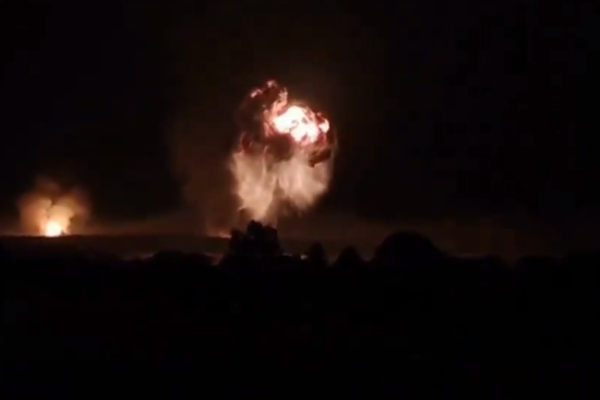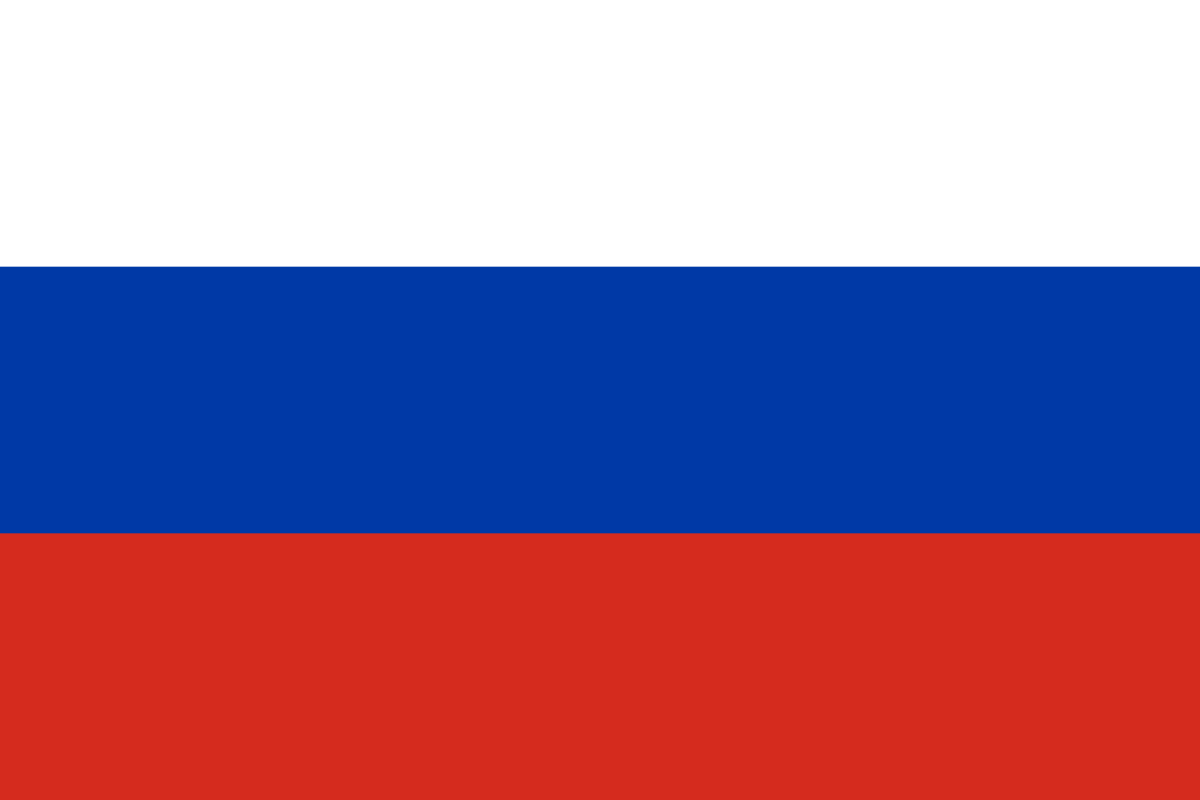Tag: Russia

Massive Explosion in Russia’s Tver Region Following Ukrainian Drone Strike
A Ukrainian drone attack reportedly triggered a massive explosion at a Russian ammunition depot in the Tver region, causing evacuations and widespread concern.

The perception war between Russia and NATO
The West or the NATO nations employed several tactics of the perception warfare to tackle Russia when it started the special military ops in Ukraine in February, 2022. The perception war between Russia and NATO is at its peak and following are some of the tactics employed by…

Interview: ‘I can see how the Russian propaganda machine works here’
RFA’s Vietnamese Service interviewed Natalya Zhinkyna, interim representative of the Ukraine Embassy in Hanoi about her country’s struggle under the Russian invasion and her work in the capital of Vietnam, a traditional ally of Russia, a number of whose people have turned out to support Ukraine. In a wide-ranging interview, she thanked the Vietnamese public for participating in recent charity events that raised more than $100,000 for humanitarian relief. The interview has been edited for length and clarity. RFA: What is the reaction of the Vietnamese public that you have noticed since the war broke out? Zhinkyna: Since the 24th of February, when the war started, every day we receive words of sympathy and support from the Vietnamese public, people write messages come to the embassy there with flowers and donations to help Ukraine, who had to leave their homes to protect their lives, ran our cities have been bombed by Russian army. We have organized charity events for Vietnamese public at our embassy in the beginning of March to raise money in order to address the humanitarian needs in Ukraine. And more charity events are coming soon. And the Vietnamese people are praying together with us for the innocent Ukrainians who lost their lives in the fierce Russian attacks on peaceful cities of Ukraine. This money is aimed at humanitarian relief for Ukraine and what is also important here that many Vietnamese opinion leaders took their mission in the informational front and help Ukraine to combat Russia’s propaganda here in Vietnam. Help to refute fakes and disinformation and expand the reasons, the costs, and the consequences of Russia’s brutal aggression for the global rules-based order, as well for the region of Southeast Asia, including for Vietnam. RFA: Can you tell us, can you give us some examples of how the Vietnamese individually and collectively shown their support toward Ukrainian people that have moved the most? Zhinkyna: When I see people coming to the embassy to just give us a hug. And I see the tears in their eyes and I hear the kind words from Vietnamese people who even didn’t have an opportunity to visit Ukraine or to know about Ukraine before. This is very touching. This is very moving. And as I mentioned, people have just flowers left at the embassy’s doors. I know this comes from Vietnamese people. This is very touching. And the donations that we receive, it doesn’t matter how much money people bring, but sometimes we will receive a big amounts from like private people like 1,000 or 2,000 dollars. I understand that this is a big donation for Vietnam, this person, and it is made from the bottom of their hearts in order to support and to help. And this is very precious. And are those messages that we receive? I personally receive thousands of messages and I’m very sorry. I cannot respond to all the all of the people who write to me, but it really inspires me or for the everyday work and it inspires my colleagues. RFA: Did it come as a surprise from you, the level of support from the Vietnamese public? Zhinkyna: This war itself, it was very much unexpected. We did understand that there is a big threat coming from Russia, but until the very beginning, we didn’t expect it to happen and then we didn’t expect the amount of support coming from the Vietnamese public. But I do understand. I do know that those are Vietnamese people who understand exactly what Ukrainians in Ukraine feel around that and how the rockets are flying over their heads because Vietnamese people, they still have their memories of the wars. Even me and my colleagues here, when we are staying in a peaceful Hanoi and we are very much worried about our relatives in Ukraine, we still do not understand that feeling of being afraid, of being scared or that your life will end just abruptly, or what is worse, your kid’s life could end. And I know that Vietnamese people do understand that. So I cannot say that this was not expected by us to receive support from the Vietnamese public. It came naturally, and we are grateful for that. RFA: You mentioned that it seems there has been a propaganda effort in Vietnamese language social media, basically propagating pro-Russia rhetoric. And you may be aware that there has been some conflicts-clashes between the pro and against sides since the war started. So are you aware of this ongoing war of information in Vietnamese social media and how do you feel about it? Zhinkyna: Of course I’m aware of that. Just yesterday, I saw a reader taking my picture and totally distorting the words that I say, so I can see how the Russian propaganda machine works here and how much money Russia puts into those efforts, into spreading disinformation and to spreading fake news into transferring their own narratives here. This is to some extent a good point. Let them spend their money on propaganda, but not on new rockets and tanks. But of course, it makes our work here difficult. This is just an information war…and we are very much grateful for all those members of the Vietnamese public who help us to refute those fakes, to help us spread the truth because their every word of truth about this war and condemnation of the aggressor helps to stop Russia from advancing further into Ukrainian land.
China, Russia slam ‘illegal’ international sanctions targeting Putin over Ukraine
Russia and China further cemented their alliance on Wednesday, hitting out “illegal” international sanctions on Russia in response to its invasion of Ukraine. “The ministers had a thorough exchange of views on the situation around Ukraine,” the Russian foreign ministry said in a statement following talks between Russian foreign minister Sergei Lavrov and his Chinese counterpart Wang Yi in the eastern province of Anhui on Wednesday. “The head of the Russian foreign ministry informed his Chinese counterpart about the progress of the special military operation … and the dynamics of the negotiation process with the Kyiv regime,” the statement said. “The sides noted the counterproductive nature of the illegal unilateral sanctions imposed on Russia by the United States and its satellites.” Wang and Lavrov, who were shown masked and bumping elbows on state TV in deference to CCP leader Xi Jinping’s zero-COVID policy, had agreed to continue to speak out on the issue “with a united voice,” it said. Both China and Russia also referenced their vision of a “multipolar” world order, implying a challenge to U.S. diplomatic and military power. China has refused to describe the war as an invasion, nor to condemn Russia’s military action in Ukraine, blaming eastward expansion by NATO for stoking security tensions with Russia and calling for the issue to be resolved through negotiation. The two foreign ministers also discussed strengthening coordination on foreign policy matters, and widening bilateral cooperation. ‘No limits’ Wang Yi was quoted as saying by state-backed Phoenix TV that Sino-Russian ties had “withstood the test of international turbulence,” amid an increased willingness to develop the relationship on both sides. “Our striving for peace has no limits, our upholding of security has no limits, our opposition towards hegemony has no limits,” Wang said. Chinese foreign ministry spokesman Wang Wenbin meanwhile reiterated the ruling Chinese Communist Party (CCP) line that Beijing sees this alliance as having unlimited potential. “There is no limit to China-Russia cooperation, no limit to our efforts to achieve peace, safeguard security and oppose hegemony,” Wang told a regular news briefing in Beijing. “China-Russia relations are non-aligned, non-confrontational and not targeted at any third party,” the spokesman said. On Ukraine, Wang Wenbin said China would “play a constructive role and provide assistance to normalize the situation in Ukraine,” adding, “any action that could add fuel to the fire or exacerbate controversies must be prevented.” Lavrov, who is in the country ostensibly for talks about the future of Afghanistan, said the international community is “living through a very serious stage in the history of international relations.” “We, together with you, and with our sympathizers will move towards a multipolar, just, democratic world order,” he said in a video clip released by the Russian foreign ministry ahead of a meeting with Chinese Foreign Minister Wang Yi. Beijing-based independent commentator Zha Jianguo said the meeting shows that the alliance between Beijing and Moscow is rock-solid. “China’s basic attitude towards the war in Ukraine will not change, which is to say that it will side with Russia while remaining neutral, and focus on its own interests,” Zha said. “I think both sides were probably telling each other the truth, sharing views and attitudes, and gaining further understanding of each other’s positions,” he said of the meeting. Low Russian morale Zha said the war had almost certainly not gone according to Russian president Vladimir Putin’s original plan. “The sticking point right now is likely to be coming from Russia,” he said. “Personally, I’m not very optimistic about [these] negotiations.” Independent political commentator Wu Qiang said it was hard to see how long Putin could keep the war going, however. “If they try to keep the areas they had de facto control of before the war, Donbass and the Crimean peninsula, then this could lead to a protracted defensive war,” Wu said. “But the state of the Russian army right now suggests that would be pretty hard for the Kremlin to do.” Wu said low morale and a hostile international community could affect the stability of Putin’s hold on power. A senior international news editor surnamed Gao said the friendly relationship between Beijing and Moscow had definitely been reaffirmed on this visit by Lavrov. “They have once more jointly condemned the so-called eastward expansion of NATO, and aid supplies will still be sent to Russia,” Gao said. “It’s just a little more subtle now, but the friendly ties are definitely being reaffirmed.” “China won’t give the U.S. anything, substantially or superficially.” Translated and edited by Luisetta Mudie.
China Russia and bad omens
Any hope that Chinese Communist Party chief Xi Jinping may have had for a quiet 2022 to ease the path to his anointment in autumn to an unprecedented third term as party chairman and state president vanished early in the face of a coronavirus outbreak, real estate and energy problems hurting the economy, and his Russian ally Vladimir Putin’s invasion of Ukraine. China’s worst COVID-19 surge since the 2020 Wuhan outbreak has prompted lockdowns of tens of millions of people, hitting consumer spending and supply chains. China’s awkward stance on the war on Ukraine–proclaiming neutrality, but sticking to Moscow’s line and censoring reports on the conflict, while its diplomats and state media spread anti-U.S. conspiracy theories–has won Xi few friends in the wealthy democratic West, and Beijing faces the risk of being hit by secondary versions of the crippling economic sanctions imposed on Russia if it steps up material support for Putin.


